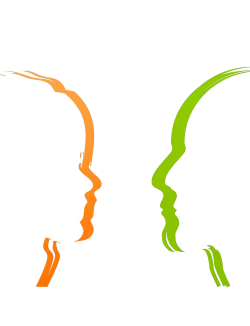Is Cluster Headache a type of Migraine?
In its clinical description, there’s no doubt that the symptoms of cluster headache are quite different from migraine. There has been some confusion in the past (such as the unfortunate term “cluster migraine“), but we’ve talked more than once about the differences.

For a quick primer, check out this migraine-cluster headache infographic. For more detailed similarities and differences, go to Cluster or Migraine: What’s the Difference?
All that being said, “migraine” is not one thing either. There are many different types of migraine with different symptoms, and in some cases with different treatments. Since we’re still learning about what causes the migraine chain reaction, and what really causes cluster headache, the question arises – is there actually a similar cause? Is this one disease that manifests itself in different ways? If so, although treatment options are quite different now, might there be some future treatments that address both?
The debate was opened up again late last year in The Journal of Headache and Pain, in a review with the appropriate title, “Debate: Are cluster headache and migraine distinct headache disorders?“
The article discusses some of the challenges when it comes to making a hard-and-fast decision. There are certainly a lot of similarities, but also a lot of differences. There is no symptom that only appears in migraine and cluster and nothing else (it would be easier if you knew that, as soon as your nose turns purple, it’s either cluster or migraine). Should we look more at treatments – diagnosing based on which treatments work? This is fraught with complications as well.
The authors give us a helpful summary, so here’s a summary of the summary. Yes, cluster and migraine share not only some symptoms during the attack, but also symptoms in-between attacks (such as visual hypersensitivity – being sensitive to bright light between attacks, for example). There are also genetic similarities, similarities in demographics (what “kinds” of people get migraine or cluster), and similarities in certain triggers (they’re basically talking about triggers in a lab – give Joe this drug, it will trigger a cluster attack. Give JoAnn the same drug, it will also trigger an attack).
But these are overlapping similarities. There are some genetic features the same, and some different. There are some symptoms the same, and some different. Cluster is also triggered “more quickly” – telling us that perhaps the “chain reaction” that leads to the symptoms is different for each.
So basically, we need to know more about each. For the time being, we still look at what has “worked best”, we still recognize that everyone is an individual and so needs individual treatment. But we do encourage further discussion and research, because the more we understand, the better treatments can become.
If you’d like to get deeper into the topic, check out this actual video debate between Dr. Anja S. Petersen and Dr. Kuan-Po Peng. They talk not only about the scientific evidence, but also the practical implications of a more or less marked divide between the two.
